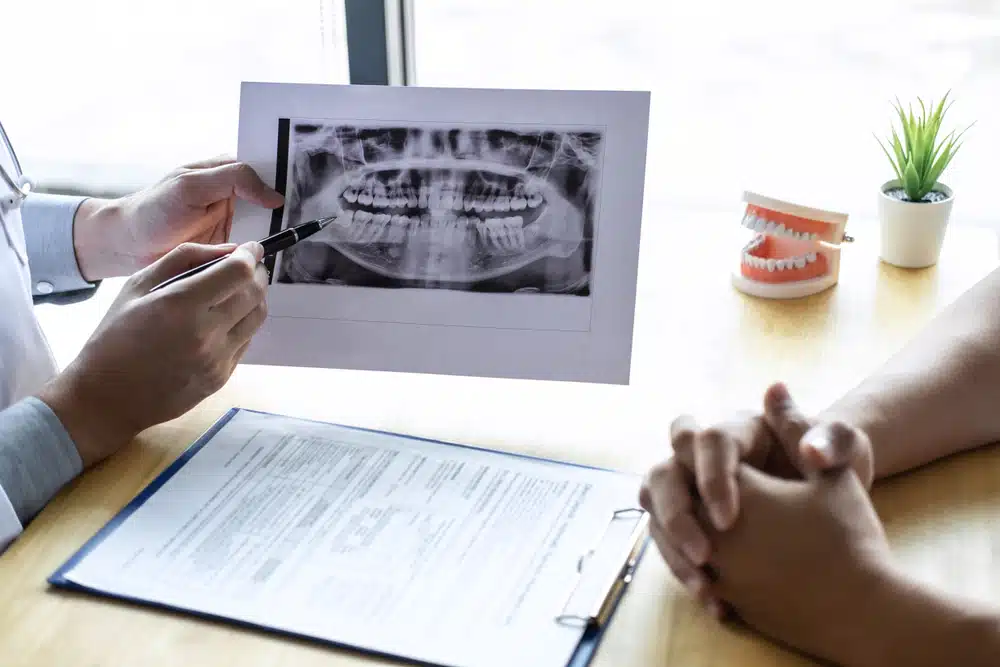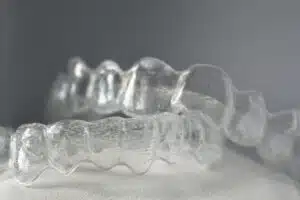Tooth loss often causes teeth to tip out of alignment. While this may not seem like a major issue, it can lead to serious dental problems over time. These problems include cleaning difficulties, bone loss, and an increased risk of losing the opposing tooth. Let’s explore why tipped teeth after tooth loss are more problematic than they appear and how addressing them early can protect your long-term oral health.
Why Tipped Teeth after Tooth Loss Are More Than Just a Cosmetic Problem
Harder to Clean: Tipped teeth create tight spaces that trap food particles and bacteria. These areas are difficult to clean, which increases your risk of cavities and gum disease. Even regular brushing and flossing may not be enough to remove all debris. This buildup can result in plaque accumulation, which harms your oral health over time.
Bone Loss: Misaligned teeth cause uneven chewing forces. When you chew, the pressure isn’t distributed evenly, leading to bone loss in the jaw. This weakens the foundation of your teeth and can cause them to become loose. If left untreated, bone loss can eventually lead to further tooth loss.
Risk of Losing Opposing Teeth: One common concern patients have is whether they’ll lose the tooth opposite the missing one. Tipped teeth can cause the opposing tooth to over-erupt, leading to root exposure. When roots are exposed, they become more vulnerable to decay. If this decay progresses, it may be difficult to restore the tooth, and extraction might be the only option.
When to Act: Don’t Wait for Pain to Signal a Problem
Many people don’t realize that waiting until pain occurs is often too late. Just because you don’t feel discomfort now doesn’t mean the issue won’t get worse. Early intervention can save you from more extensive and expensive treatments down the line. Teeth are meant to handle vertical chewing forces. When tipped, they experience lateral forces, which lead to wear, fractures, and further misalignment.
Treatment Options for Tipped Teeth
Orthodontic Treatment: Traditional braces are a highly effective way to straighten tipped teeth. By realigning the teeth, braces correct the underlying issue and restore proper function. This improves your bite and makes cleaning easier, preventing further dental problems.
Invisalign: Invisalign offers a discreet alternative to braces. These clear aligners gradually shift your teeth back into place. They are nearly invisible, removable, and offer a comfortable way to correct tipped teeth. Invisalign is a popular choice for adults looking for a less noticeable solution.
Dental Implants or Bridges: If tooth loss is the cause of the tipping, replacing the missing tooth can stabilize the surrounding teeth. Dental implants are a permanent solution that helps distribute chewing forces evenly. This prevents misalignment and protects your bone structure.
Why Early Treatment Matters
Ignoring tipped teeth after tooth loss can lead to significant problems over time. Bone loss, cavities, and gum disease are just some of the complications that may arise. Orthodontic treatments like braces or Invisalign can fix alignment issues, making your teeth easier to clean and healthier overall. And replacing missing teeth with implants or bridges can prevent tipping altogether. Acting early can save your teeth from unnecessary damage.
Tipped teeth can seem like a minor issue, but they create long-term challenges for your oral health. By addressing tipped teeth with orthodontic treatment or implants, you can protect your smile from bone loss, cavities, and tooth loss. Schedule a consultation with your dentist to explore treatment options and prevent further complications.





